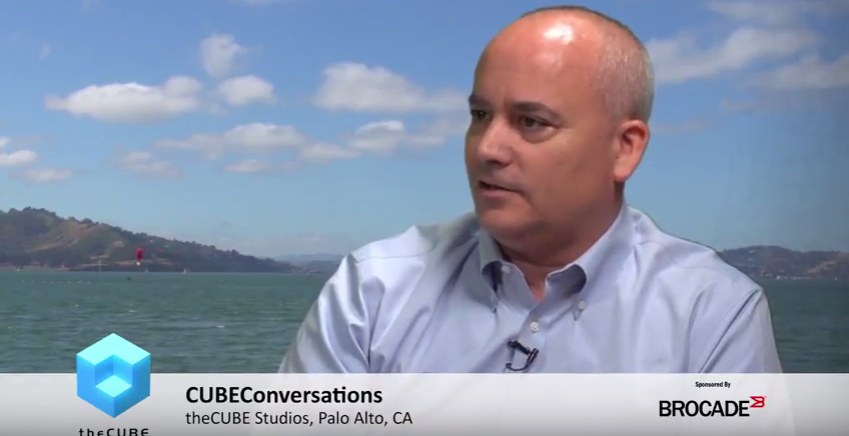 NEWS
NEWS
 NEWS
NEWS
 NEWS
NEWS
Is IT virtualization on a collision course with IT security? Customers are demanding faster, simpler operations, and vendors are hustling to deliver. One question that often goes unasked is, what about security? As your data center becomes easier for you to enter and operate, does that mean it will be easier for hackers too?
Jack Rondoni, VP of Storage Networking at Brocade Communications Systems, Inc., a storage networking company, said that the Brocade Fibre Channel has a unique, baked-in value proposition in this respect. “It is fundamentally more secure than Ethernet,” he told Jeff Frick (@JeffFrick), host of theCUBE, from the SiliconANGLE Media team. “When you plug it in, it’s off by default,” he said. “So just because you plug it in doesn’t mean you have access to anything.”
By contrast, Ethernet is wide open as soon as it’s turned on. With Fibre Channel, you have to go through a process to gain access. Rondoni concedes that some say this adds complexity, but he sees it as a security asset. He said that enterprises need to think more about whether they are compromising security in favor of instant gratification. “That’s one thing that gets kind of lost sometimes in the discussion of the modern data centers,” he said.
Hu Yoshida, VP and CTO at Hitachi Data Systems Corp., explained his company’s logic in choosing to partner with Brocade on its new Gen 6 Fibre Channel Directors (for mission-critical storage connectivity and business resiliency solutions designed for the all-flash data center). “We could have tried to develop our own fibre channel switches, but that would have taken a lot more effort and time and distraction from what our core competencies are,” he said.
Rondoni agreed that as demand for total solutions grow, any company that insists on going it alone is placing itself at a disadvantage. “If you want to participate in a cloud type of architecture — whether it’s public, private or hybrid — you’re going to have to partner,” he said.
Watch the full interview below, and be sure to check out more of SiliconANGLE and theCUBE’s live event coverage.
THANK YOU